Historic Games - All Whites vs Australia 1981

Written by Michael Burgess and supported by the NZ Football Foundation
“In our whole campaign, that was by far our best game. Everyone played well and they had no answers.”
– Steve Wooddin
All Whites vs Australia
May 25, 1981
Sydney Cricket Ground
As he leafed through the newspaper article, All Whites’ coach John Adshead knew it was manna from heaven.
A few days out from a vital World Cup qualifying clash with Socceroos, the local media had all but written off New Zealand’s chances. The worst was Tommy Anderson, writing in the Sunday Mirror, who had described the All Whites as ‘no better than the effluent running out into Sydney harbour’.
“You don’t need a lot of motivation to play Australia, but when you have got journalists writing like that, it certainly helps,” says Adshead. “It was typical Australia. They’ve already won the game.”
Adshead made sure copies were distributed.
“The words that were in the newspaper, that really made us lift,” recalls midfielder Grant Turner. “It was pinned up on the noticeboard in the team room.”
The Australians had never lost a World Cup qualifying match to New Zealand and were supremely confident, after a 3-3 draw at Mount Smart stadium a month earlier.
They had spared no expense for their campaign, with a budget of almost $1 million to prepare the team over the previous two years. They had German coach Rudi Gutendorf, whose CV included stints at Stuttgart, Hamburg and Chile, along with former Manchester United and Scotland manager Tommy Docherty as a technical advisor.
But the All Whites were optimistic. They had played poorly in Auckland, but fixed the defensive issues from that match, before achieving three solid results on the road, in Fiji (4-0), Taiwan (0-0) and Indonesia (2-0).

Ricki Herbert's attempt is saved in the 3-3 draw at Mount Smart stadium | Credit Photosport
“You couldn’t get a better build up,” said Adshead. “It was the first time New Zealand had been a professional team. We travelled and we stayed together. By the time we arrived in Australia I don’t think New Zealand could have had a better preparation for a game, ever.”
Not everything went smoothly, as their bus from Sydney airport couldn’t be located, leaving the players milling around for 90 minutes. Striker Steve Wooddin recalls that their hotel was “miles from nowhere” and the training ground was “a shambles”.
Two players went down with a virus, while Ricki Herbert split his eye in the final practice session, completing the game with a patch.
New Zealand had beaten the Socceroos only once in the previous 27 years, and Adshead wanted to address any lingering inferiority complex. He asked Australian based players Steve Sumner and Glen Dods to talk to the squad, sharing their inside knowledge of the Socceroos.
“When he got onto his left foot, there wasn’t much going to stop him.”
– Grant Turner
The team was primed for battle as they ran onto Sydney Cricket Ground, knowing what was on the line.
“We knew what the outcome had to be,” says Grant Turner. The 22-year-old had made his debut a year earlier, quickly becoming a vital member of the team.
“When you walk out over that chalk, there is a mindset change,” says Turner. “Nothing was going to get in my way from what was going to happen. I was particularly excited because my family was there. It was the first time my brother had been to watch me.”
In front of 50,000 people on a sunny afternoon, the All Whites weathered some early pressure, then worked their way into the match.
In the 29th minute Wooddin stamped his mark, with a neat finish into the bottom right corner, struck from just outside the penalty area.
“It came from the right and I let it run to my left foot on the edge of the box,” says Wooddin. “I hit it and the keeper was slow getting down and it went underneath him.”
“They always blamed the goalkeeper for that one but it was `Woody’s’ technique,” says Adshead. “He had very little back lift and hit balls a lot earlier than goalkeepers thought he would.”
From his position in left midfield, Turner had watched play develop.
“Keith [Mackay] played a little one-two, no one shut him down and then Woody got the ball,” says Turner. “When he got onto his left foot, there wasn’t much going to stop him.”
"I was strong - I used to do weights on my neck - and then it is just timing, like hitting a golf ball.”
– Grant Turner
New Zealand were content at halftime and had taken the sting out of the home support. Back in New Zealand, a huge television audience was revelling in the spectacle.
The pattern continued in the second half, as the All Whites dealt with the aerial attack favoured by Australia.
“We were comfortable,” says Adshead. “The longer the games goes, you start getting worried. If they got one, you could be in a lot of trouble, because they were a very good side. But we were better.”
Then, with six minutes to go, came one of the most memorable moments of the entire campaign, a goal that has been replayed endlessly since.
“As a headed goal, I don’t think I’ve seen a better one,” says Adshead. “It had distance, he had to get real power on that ball. Everything about that goal will live in everyone’s memory for years to come. Kids should be shown the video of it.”
Grant Turner’s header was from fifteen metres out, with a perfect connection, as he soared into the Sydney sky.
“I thought he was playing AFL, the height that he got,” says Wooddin. “I played with a couple of the Australians the following year at South Melbourne and they said they couldn’t believe someone could jump that high.”
But it wasn’t a coincidence. Turner didn’t enjoy heading the ball as a youngster – after switching from rugby league at 10 years old – but came up with a unique training method.
“As a kid I would have the ball hanging out on the clothesline,” recalls Turner. “I would jump and head it, jump and head it.”
Turner later did weight training – uncommon at the time – complemented by hill runs, which developed a considerable power base, as he built himself into a formidable athlete.
“I was always quite strong in the legs, doing reasonable weights and practising a lot of heading as a kid,” says Turner. “I had the ability to be able to get up and actually stay there a little bit.”
As well as Turner’s staggering finish, the build-up was impressive, as the All Whites swept the length of the field.
“I was out wide left,” says Turner. “Australia had attacked down the middle of the park and Bobby [Almond] had nicked the ball. It went to Steve Sumner, then ‘Woody’ (Wooddin), who was on the halfway line out wide.”
“I ran past Woody and took some players away and he whacked it 40 metres across the pitch. Buzzer (Keith Mackay) dropped it to Duncan [Cole], and the rest is history.”
Turner powered into the area, only thinking about getting above his marker, and then hitting the target.
“The ball in from [Duncan] Cole was strong – not loopy, a driven ball,” recalls Turner. “I was travelling at a decent rate and got it flush. I was strong - I used to do weights on my neck - and then it is just timing, like hitting a golf ball.”
“It was unbelievable. The goal was great, but it was more the relief that we were two goals up, with six minutes to go.”
The moment had added poignancy, as Turner spotted his brother Craig in the stand.
“I looked over towards him and he was there, with his arms up,” says Turner. “He was right behind the goal.”
Around the same time Adshead glanced across at the crestfallen Australian bench.
“It was all over,” says Adshead. “I looked across at Rudi Gutendorf and he was a broken man. We had dominated Australia, on their own patch.”
The All Whites had played the perfect match, to notch only the second victory on Australian soil since 1924.
“In our whole campaign, that was by far our best game,” says Woodin. “We completely outplayed them from start to finish. Everyone played well and they had no answers. We had to win and it was our best team performance. It was a nice flight home as well.”
All Whites 2 (Steve Wooddin 29’, Grant Turner 84’)
Australia 0
Halftime 1-0
All Whites: Richard Wilson, John Hill, Bobby Almond, Ricki Herbert, Glen Dods, Keith Mackay (Sam Malcolmson), Steve Sumner, Duncan Cole, Grant Turner, Brian Turner (Clive Campbell), Steve Wooddin.
Article added: Thursday 07 October 2021

New Zealand Football Inc
Football House, North Harbour Stadium,
Stadium Drive, Albany,
Auckland, New Zealand
© Copyright New Zealand Football. All rights reserved.
Sign up to our fan newsletter:


